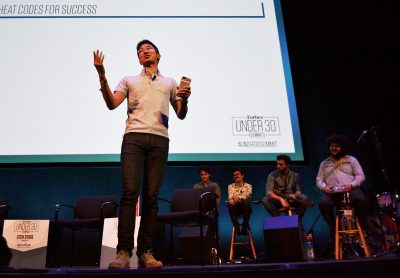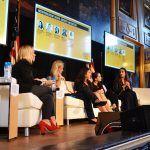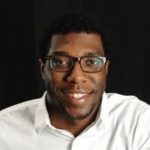
When a multimillion dollar mobile advertising company is founded by a 19-year-old, the world pays attention. When said entrepreneur goes on to amass great success for himself and recognition for his work, he writes a book, so those even decades older than him can get a glimpse into the mind of an extremely successful businessman.
Brian Wong, now 25, is the founder and CEO of Kiip — and a gamer at heart, he confessed during his panel at the Forbes Under 30 Summit on Monday. Wong, clad in a gray collared T-shirt and holding his iPhone, stood in front of hundreds of Forbes attendees at the Cutler Majestic Theatre at Emerson College, named the “Tech Stage” for the summit. The audience members, most of whom were between 20 and 45 years old, sat at attention, ready to listen to any advice he might have to offer.
Wong spent half of his 15-minute-long panel describing his upbringing in Canada as the son of two Hong Kong immigrants, as well as how he found the inspiration for Kiip. His technology and gamer-based mentality, he said, drove him to write his book, called “The Cheat Code,” using the metaphor of the gaming cheat codes he used while playing.
“It’s not designed as a cheat through life,” Wong said during the panel. “It’s designed to be a nod towards the cheat codes we use in playing games.”
One “cheat code” Wong described was the importance of “knowing your superpower.” To Wong, this means having the self-awareness to recognize what one’s core skills are, and being able to harness and channel them into work.
“This is one of my favorites,” Wong said. “And what do I mean by ‘know your superpower’? There’s a point in your adulthood where you stop trying to focus on fixing your weaknesses, and you put all your energy and resources into your strength.”
Wong was calm, confident and often made lighthearted jokes on stage; he made an effort to keep the crowd engaged, and received multiple laughs and cheers throughout his panel. At one point, he asked how many attendees were entrepreneurs in the tech industry. Over 100 hands shot up as thunderous applause filled the theater.
Wong’s self-appointed “superpower” didn’t come as a surprise.
“My superpower is I’m really good at getting people super excited about s—t,” he said. Wong went on to describe that a “superpower” didn’t necessarily come from one’s line of work, but rather skills that came along with what one does for fun. Superpowers, he said, are discovered when you look back on a set of tasks or a hobby that “seemed effortless, and wasn’t a chore.”
Blake Reagan, a junior studying computer information systems at Texas State University, said he identified with the idea of looking into your passions to find your greatest skill sets.
“Whatever it is that you are really, really into, that’s what you need to do — not necessarily what you think that you should be doing,” Reagan said.
He said this realization influenced him to change his major. “I took this computer class, and I could just sit there for hours without, honestly, being bored. And I was like, you know what, I’d kind of rather just do this.”
Wong, who earlier in the panel mentioned that he is frequently asked how his age affects his ability to raise money and be taken seriously, later listed another “cheat code”: don’t treat investors “like God.” He said investors are just fellow businesspeople with obligations and people depending on them too, and that it isn’t necessarily a good idea to change a business model according to just one investor’s feedback.
Jack Tang, the co-founder and CEO of Urban Massage and a 30 Under 30 honoree at the summit, said his UK-based business has raised “about $10 million so far,” and that he agreed with Wong’s point of not allowing investors to sway a company.
“I never treat them like God,” Tang said. “It’s exactly the same — they raise their own funds … One of the secrets, for sure, is not treating investors like what they say is gospel.”
Wong returned to his roots and his appreciation for his parents for his final “cheat code”: gratitude. His parents, an accountant and a nurse, were so poor in Hong Kong, he said, that they didn’t know tomatoes were red until they moved to the United States — before then, they couldn’t afford to wait until the fruit ripened before eating.
He joked that “the key to everything you want in life” was to read “The Cheat Code,” but gave sound advice.
“What if there were cheat codes in real life where you could design things?” Wong said. “What if we could be able to effortlessly tweak a few things … to potentially be more successful or to get yourself more success? And that’s the whole objective of that book.”




